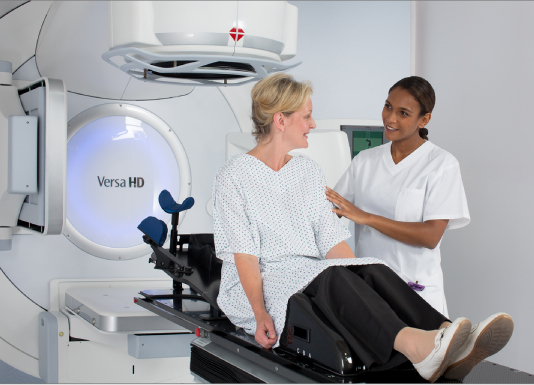The number of women of child-bearing age, diagnosed with endometrial cancer, has been on the rise in the United States in recent times. Some of the main factors behind this phenomenon include obesity, diabetes and delay in child-bearing. This has been a matter of concern and the topic of intense discussion. The main motto of these discussions has been protection of ovarian function and fertility and prevention of sterility. This is because normal treatment measures for cancer include chemotherapy, radiation and surgery, all of which might cause permanent damage to the ovaries and lead to infertility.
Recently, as a modulation of the current clinical practice guidelines on postoperative radiation therapy for women with endometrial (uterine) cancer by the American Society for Radiation Oncology (ASTRO), the American Society of Clinical Oncology (ASCO) released a new set of recommendations, keeping ovarian functions and safety in mind. These guidelines highlight the standard care for women affected with endometrial cancer, as agreed upon by both ASCO and ASTRO, along with the areas where more research is needed and may have scope for improvements.
Previous research has shown that patients in different parts of the world receive different treatments for endometrial cancer. These guidelines aim to provide a standardized measure for the best available treatment measures for these patients.
Key guideline recommendations:
- For women who have undergone a total abdominal hysterectomy with or without lymph node dissection, it is reasonable to avoid radiation therapy if they have grade 1 or 2 cancers with either no invasion or <50% invasion of the myometrium.
- Vaginal cuff brachytherapy is as effective as pelvic radiation at preventing vaginal recurrence for patients with (1) grade 1 or 2 tumors with > 50% myometrial invasion or (2) grade 3 tumors with <50% myometrial invasion.
- The best currently available evidence suggests that reasonable options for adjuvant treatment of patients with positive nodes, or involved uterine serosa, ovaries/fallopian tubes, vagina, bladder, or rectum includes external beam radiation therapy, as well as adjuvant chemotherapy.
“The goal of this guideline is to reduce unnecessary and potentially harmful treatment of women who are at low risk for developing recurrent cancers, while increasing the use of combined radiation and chemotherapy in women who are at high risk for recurrence and therefore need treatment,” said Alexi A. Wright, MD, MPH, co-chair of ASCO’s Expert Panel who endorsed the guideline. “We need to improve outcomes for women with endometrial cancer.”


